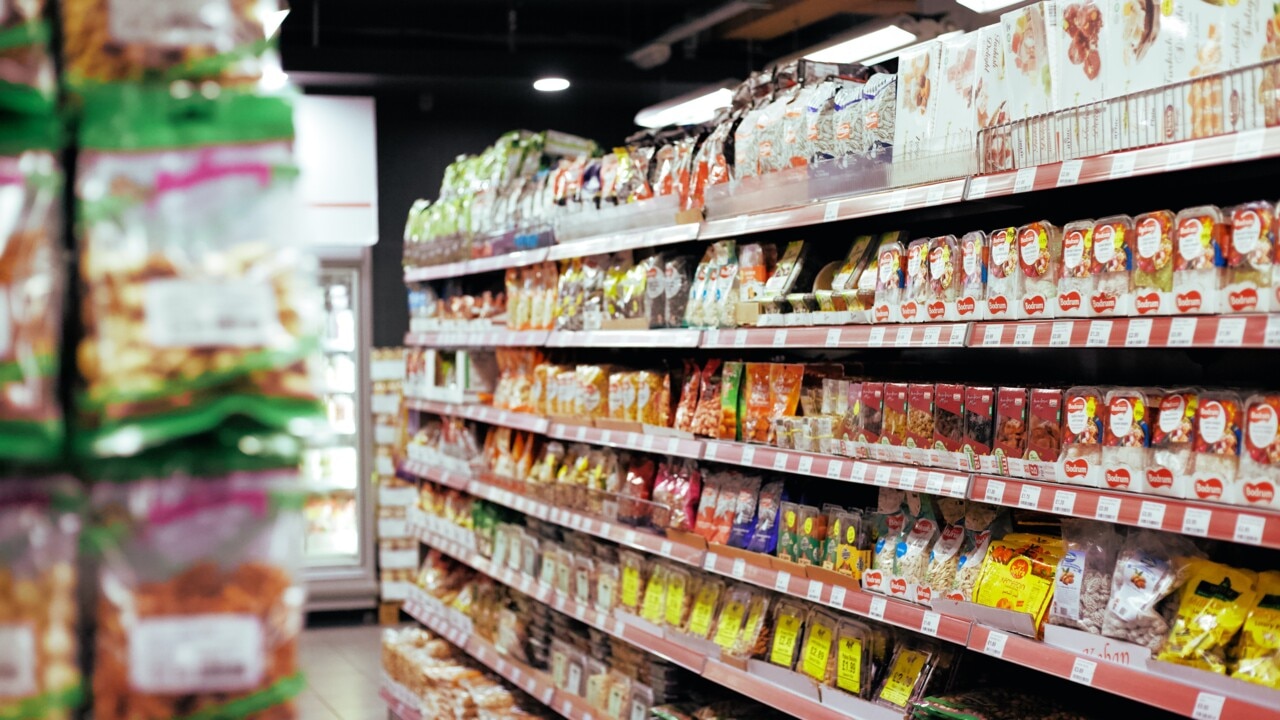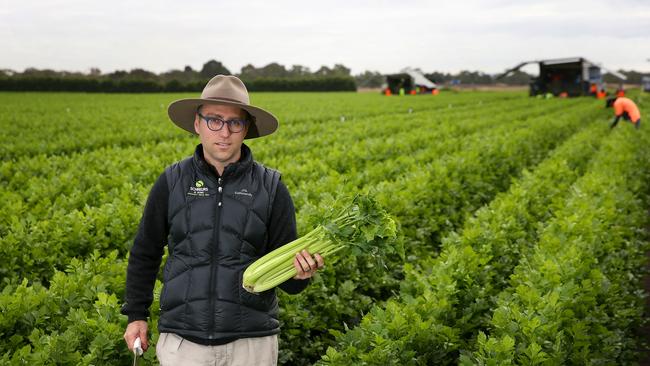Woolworths supply chain: Veg growers lose out as orders cut
Farmers have been hit on all sides as Covid slashes their workforce and supermarkets reduce orders due to the extreme supply-chain jam.

Fruit and vegetable growers are feeling the economic pinch of supply-chain chaos this week, with some farmers reporting reduced orders from supermarkets while others haven’t been able to harvest due to Covid-related worker absences.
Woolworths has told its fruit and vegetable trade partners that it is cutting back on purchase orders, due to workforce shortages of more than 20 per cent across distribution centres.
In a letter seen by The Weekly Times, the retailer said “we continue to see high levels of absenteeism and a large number of team members in isolation creating challenges to quickly recover back to a normal workforce”.
“The cumulative effect has impacted our capacity for receival and dispatch in our DCs,” the letter said. “To manage this situation across a number of our DCs we are having to cut back on purchase orders.”

The actions would be taken for the next two weeks, according to the letter.
In response to questions from The Weekly Times, a Woolworths spokeswoman said the retailer was “working with our partners to review their supply volumes”.
“While this is never our first preference, this short term measure will help us prioritise key fresh lines. Our team will be contacting any affected suppliers directly,” the spokeswoman said.
The current wave of Covid cases has caused severe staff shortages across the food supply and distribution network, affecting everyone from harvest crews to truck drivers and distribution centre workers.
Supermarket fruit and vegetable shelves have been empty as a result.
The shortages come as the meat industry earlier this week issued a stark warning that processing capacity was also under severe stress.
GROWERS LOSE OUT

Organic fruit grower and Victorian Farmers Federation horticulture president Nathan Free said his business had experienced a dip in supermarket demand, with orders down 50 per cent on what he would normally expect.
“We are a little bit fortunate in that we are between varieties of stone fruit at the moment,” he said. “But if this continues past a week, we will see some serious issues.”
He said the bottlenecks along the supply chain started on farms, with harvest labour shortages exacerbated by Covid isolation requirements.
“We already have a very limited workforce,” he said.
“At the moment, on our property, we have at least a third, if not half of our workforce off due to Covid and testing and so on and so forth.
“It is hampering our business very strongly.”

South Gippsland celery grower Chris Schreurs, of Schreurs & Sons, said a large number of his harvest crew contracted Covid in the past week, causing his business to have to cancel orders.
He described the situation as a “tsunami,” with shortages at every step in the chain compounding the problem.
“It is a bit of a snowball effect,” he said.
“If this keeps happening throughout the market to other growers, it will hard to tell if the lack of produce on shelves is due to high demand, or an inability to get produce to shelves.”
He said the week without the ability to fulfil orders had “a very heavy impact on the business operation”.

Victorian Farmers Federation president Emma Germano said order cancellations were starting to filter through to growers, as supermarkets struggle to deal with normal volumes of fresh produce with a reduced workforce.
The situation had become “a lot more volatile” in the past week, she said, levelling criticism at the government for not prioritising the food supply sector for access to rapid antigen tests.
“We have a government that is months behind the Eight ball, and an industry that is warning about this issue two months in advance,” she said.
“They are more concerned about how many people should be on a dancefloor on New Year’s Eve than the important stuff to the community, which is whether there is food on our shelves.
“We spend all this time on pressers about tennis players when there is no food on our shelves.”
Ms Germano said the VFF had called on the government to urgently rethink quarantine rules and fast-track supply of RATs for supply chain workers to ensure capacity.
The Australian Fresh Produce Alliance said industry was anticipating the problem would get worse over the next two weeks, and was also calling on state and territory governments to make immediate changes to the isolation requirements for food, transport and distribution workers to ensure that the entire supply chain could provide food to Australians.
“Some businesses are seeing a halving in their workforce in one day. People aren’t turning up because they have Covid, are close contacts or are concerned about Covid. This is affecting the harvesting, packing, transport and distribution of fruit and vegetables” said AFPA chief executive Michael Rogers.
FINGERS CROSSED FOR UPCOMING TABLE GRAPE HARVEST
Australian Table Grapes Association chief executive Jeff Scott said seven day isolation requirements would present “challenges” as the table grape harvest approached.
He said a number of people in the Robinvale area had contracted Covid or where close contacts of people with the illness, but he hoped their “time (in isolation) would be served” by the time harvest got underway in 10 days’ time.
Some growers in the Mildura area have already started this season’s harvest, and were carefully following their Covid-safe plans in an attempt to avoid losing staff as case numbers in the region grow.
SUPERMARKETS RESPOND

Woolworths Group chief executive Brad Banducci issued an update confirming more than 20 per cent of workers at its distribution centres and 10 per cent of in-store staff were absent, driven by Covid.
Responding to questions from The Weekly Times, a spokeswoman said stores could have reduced availability of some products as a result, as deliveries were less frequent than normal.
“We are working hard to deliver stock to stores as quickly as possible,” the spokeswoman said. “Deliveries continue to arrive in stores daily, with a particular focus on fresh food and essentials lines. We expect to see availability improve over the coming weeks.”
Supply shortages were greatest in NSW stores. Queensland stores were experiencing some effect on supply, though less than in NSW.

Woolworths also said poultry and some meat products might be in reduced supply due to Covid challenges faced by suppliers, while Woolworths’ milk supply was currently stable.
Woolworths Group has a number of distribution centres in areas of high community transmission, which are experiencing higher than usual absenteeism.
A Coles spokesman said “operations have been impacted and longer lead times are being experienced throughout the supply chain” as a result of worker absences due to Covid infection and isolation.
“We are working collaboratively with our suppliers to adjust orders and delivery times where required, including when they are unable to fulfil regular volumes, or when our supply chain lacks the capacity to process inbound deliveries due to transport and distribution workers being required to isolate,” the spokesman said.




